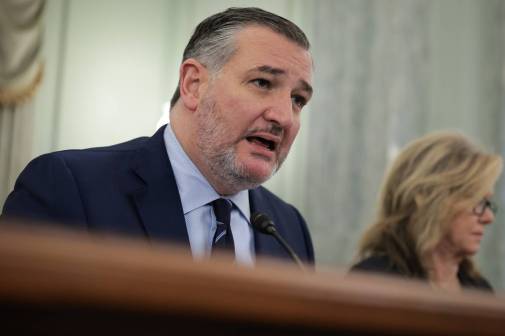Bill to ban Internet access taxes sets the stage for fight over e-commerce levy

A bill to permanently ban state and local taxes on Internet access bills is now headed to President Barack Obama’s desk, setting the stage for fierce debate on legislation that would let states and localities start taxing online transactions instead.
Through some legislative maneuvering, the Senate last week managed to pass a permanent moratorium on Internet access taxes as part of an unrelated customs bill. Congress has extended the tax ban on a temporary basis several times since lawmakers first passed a moratorium in 1998, but a group of senators backing remote sales tax legislation agreed to clear the way to make the ban permanent after extracting a promise from Majority Leader Mitch McConnell for a vote on their bill sometime this year.
The toppling of those legislative dominoes is prompting consternation among the state and local IT community, as policymakers and legislators alike grapple with the financial and technical implications of the taxation debate.
“We see this as a really important federalism issue, that the federal government respect the sovereignty of our states and local governments to establish the kind of tax authority that makes sense for them,” Elizabeth Kellar, deputy executive director of the International City/County Management Association, told StateScoop. “I’m still in shock after this went through so quickly.”
Indeed, for the seven states currently levying Internet access taxes thanks to a grandfather clause in old legislation — Hawaii, New Mexico, North Dakota, Ohio, South Dakota, Texas and Wisconsin — the new legislation could produce some huge budget consequences. One estimate suggests that the end of the taxes would cost the states and their localities roughly $500 million in annual revenue, though the law gives them until June 2020 to phase out the taxes.
Jay Driscoll, executive director of the Internet Tax Freedom Act Coalition (a group of tech companies and nonprofits pushing for the legislation), thinks they better start preparing for that eventuality, as the Senate’s 75 to 20 vote “signals obvious, veto-proof support” of the legislation.
“Allowing folks to get Internet access on whatever device through any provider at a lower cost is good for everybody,” Driscoll said.
Max Behlke, manager of state-federal relations for the National Conference of State Legislatures, is less certain about the Internet tax ban’s positive effects.
“If localities can’t collect those dollars, then down the road, they’re either going to go to the state to ask for more money to backfill it or they’re going to be increasing property taxes to make up for the revenue loss,” Behlke said.
The online sales tax connection
Daniel Castro, vice president of the nonprofit Information Technology & Innovation Foundation, hailed that sort of online resource as key for making sure states aren’t “just producing legislative text, but the data necessary to actually write the rules.”
Yet even with those provisions, Steve DelBianco, executive director of the e-commerce trade association NetChoice, worries that both bills would “force businesses to understand 10,000 jurisdictions with different rates and rules and force those businesses to incur the costs of modifying their information systems to codify those taxes.” He said NetChoice would push back against both bills.
Further complicating matters are the realities of Congress.
Behlke is optimistic about the Senate bill’s chances in that chamber now that McConnell has given it his blessing — he also points to the Senate’s passage of a version of the bill 2013 with 69 votes as evidence of its support — but thinks it might run into trouble in the House.
The bill would go before the House Judiciary Committee, chaired by Rep. Bob Goodlatte, R-Va. Behlke said Goodlatte has “shown no willingness whatsoever” to bring the bill to a vote, favoring instead legislation that would tax online transactions only at the rate of the state the business is based in.
A committee aide told StateScoop that Goodlatte is working on “finding a consensus” on the issue, while Behlke added that House Speaker Paul Ryan assured e-commerce tax supporters that he’d consider bringing a bill directly to the floor for a vote if the legislation continues to stall.
State action leads to SCOTUS?
In the meantime, states could take action on their own. Behlke said he’s counted 10 states that have already introduced bills to tax e-commerce transactions, and he estimates that number could swell to 20 or 25 legislatures in the coming months, with a bill in South Dakota closest to passing.
The ultimate goal of that move would be to prompt a legal fight that could end in the nation’s highest court, Behlke said.
In 1992, the Supreme Court ruled that online retailers are exempt from sales taxes, but if states passed their own laws and tried to collect them anyway, Behlke feels that any companies that pushed back could prompt a legal dispute that winds up back before the justices to settle the issue.
Supporters of the taxes point to Justice Anthony Kennedy’s concurring opinion in a similar case last year, where he calls for a case to be brought to the court so it can reconsider the issue — in light of all the technological changes in the industry in the ensuing years.
Should the court rule in favor of e-commerce taxes, Behlke notes that companies would “lose out on all the benefits” the federal bills provide, like free software, making it more likely that Congress will act on the issue once election season passes.
Yet DelBianco sees any efforts by individual states as a substantial “concern” for online retailers, and Castro hopes lawmakers can find some common ground on the issue sooner rather than later.
“States are right to be frustrated,” Castro said. “But we need these uniform rules across the board.”
Contact the reporter at alex.koma@statescoop.com, and follow him on Twitter @AlexKomaSNG.






